Blog
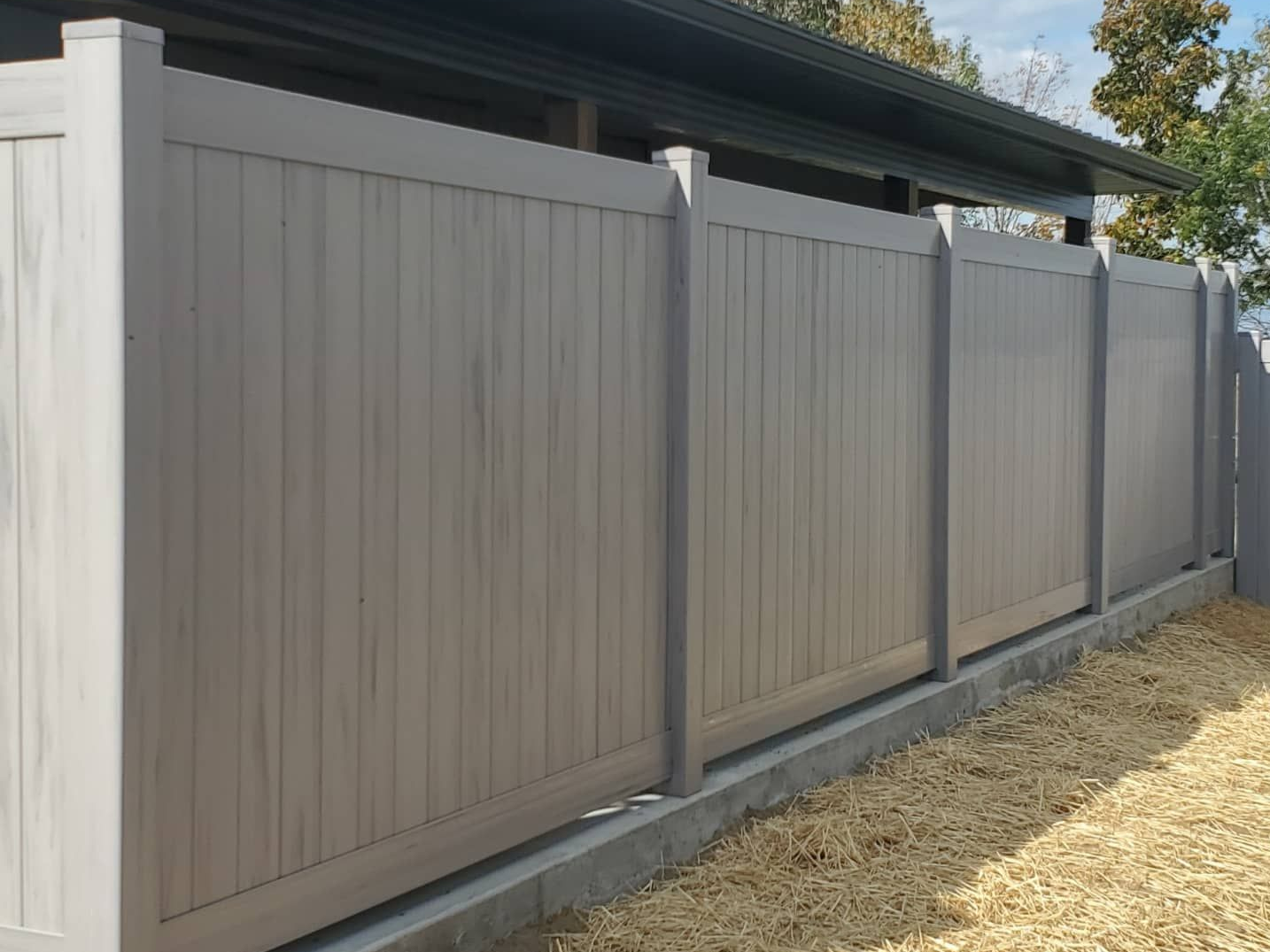
Beauty and privacy equals perfection. If you're seeking to transform your backyard into a secluded oasis, a vinyl privacy fence is the ideal solution. A professional privacy fence installation ensures not only a beautiful result but also lasting durability and security. For residents of Apple Creek, Ohio, and surrounding areas, finding a reliable fence company near me that specializes in these projects is the first step. At United Fencing, we are the trusted vinyl fence installers in Wayne County Ohio, ready to provide the expertise and service you need. The Unmatched Benefits of Vinyl Privacy Fencing Vinyl fencing has become a top choice for homeowners who value both aesthetics and practicality. Its appeal lies in its key advantages: Superior Durability: Vinyl is a strong, weather-resistant material that won't rot, rust, or splinter. It stands up to Ohio's varied climate—from intense summer sun to icy winters—without losing its structural integrity. Low Maintenance: Unlike wood, vinyl never needs painting, staining, or sealing. Its non-porous surface is easy to clean with a simple rinse of a garden hose, saving you countless hours of upkeep. Aesthetic Versatility: Vinyl privacy fences come in a wide variety of styles, colors, and textures, allowing you to choose a design that perfectly complements your home and landscaping. The United Fencing Advantage: Expertise in Every Installation While vinyl's benefits are clear, a successful project hinges on professional installation. Our crews are the most experienced vinyl fence installers near Wayne County Ohio. We know that proper post-setting and precise panel alignment are crucial for a fence that is not only visually appealing but also stable and secure for decades to come. We understand the specific requirements of our local terrain and climate, ensuring that your fence is built to withstand the elements from day one. Our professional approach means we handle every detail, from site preparation to final cleanup, providing you with a seamless experience and a finished product you can be proud of. Your Trusted Partner for Privacy Fence Installation Choosing United Fencing means you're partnering with a local expert committed to quality and customer satisfaction. We are more than just a fence company; we're your neighbors, dedicated to enhancing our community one property at a time. We guide you through the entire privacy fence installation process, helping you select the perfect style to meet your needs and budget. From our comprehensive selection of high-quality vinyl materials to our skilled crews, we provide a complete solution. Don't settle for anything less than a professional installation that guarantees beauty and longevity. Contact United Fencing today to schedule your consultation and learn why we are the premier destination for vinyl fence installers near Wayne County Ohio. Let us help you create the private, beautiful space you've always wanted. We help make better neighbors.

Colder weather? Time for new bedding. As the crisp autumn air signals the coming of winter, livestock and pet owners are preparing to keep their animals warm, dry, and comfortable. Finding the right bedding is a top priority, and if you're looking to purchase high-quality stall bedding shavings or cedar wood shavings for kennels, your search ends at United Fencing. We understand the importance of animal comfort during colder months and are proud to be your go-to kennel supplies and cedar shavings Ohio farm store, offering everything you need to keep your animals healthy and cozy. Choosing the Right Stall Bedding for Your Livestock Selecting the proper bedding is crucial for your livestock's health. Clean, dry bedding helps prevent a variety of health issues, including respiratory problems and hoof diseases, while also providing essential insulation. Our selection of stall bedding shavings offers excellent absorbency and is carefully screened to reduce dust, ensuring a healthier environment for horses, goats, and other farm animals. Creating a deep, comfortable bed not only keeps animals warm but also encourages them to lie down and rest, which is vital for their well-being. The Unique Benefits of Cedar Wood Shavings for Kennels For dog owners, choosing bedding for outdoor or indoor kennels is equally important. Our cedar wood shavings for kennels are a popular choice for good reason. The natural oils in cedar act as an effective insect repellent, helping to keep fleas and other pests at bay. Additionally, cedar provides a pleasant aroma, and its excellent absorbency helps to manage moisture and odor. Using these shavings in your doghouse or kennel provides your canine companion with a clean, dry, and cozy space, protecting them from the cold ground and providing a comfortable place to rest. Your One-Stop Kennel Supplies and Cedar Shavings Ohio Farm Store At United Fencing, we offer much more than just bedding. We are your comprehensive resource for preparing your animals for winter. Beyond kennel supplies and cedar shavings needs, you can find a variety of products to meet your animals' every need, including: Nutritious Feed: Ensure your animals have the energy they need to stay warm with our selection of high-quality feeds. Shelters: We carry a range of durable shelters to provide essential protection from wind and snow. Our knowledgeable staff is always on hand to assist you, offering advice on the best products for your specific animals and helping you find everything you need to get ready for the winter season. We are committed to providing the community with top-tier products and services. Visit United Fencing in Apple Creek, Ohio, today to make your purchases and ensure your animals are prepared for the cold. Your animals deserve the best, and we are ready to help.

Are you planning to build a safe and secure enclosure for your horses? A DIY electric horse fencing project is a great way to save money while ensuring your equine friends stay safely contained. But a successful installation requires more than just wire and posts; it demands the right electric horse fencing supplies. At United Fencing, we are your trusted local source for all the components you need to build a professional-grade electric horse fence, right here in Wayne County, Ohio. Horse Fence Energizer Supplies: Powering Your Project The heart of any electric fence system is the energizer, the unit that delivers a safe but effective shock. Choosing the right one is paramount. We offer a wide range of horse fence energizer supplies to suit every power source, including AC low impedance models, powerful dual-purpose energizers, and even solar options. Our selection ensures you can find a power source that fits your property and fence length. The Right Connections: Wire, Insulators, and Posts To contain your horses effectively, you must select the correct wire and all its accessories. We stock a variety of high-visibility wire options designed specifically for equine safety. Just as crucial as the wire itself are the insulators. Our wide variety of electric wire insulators for equine fences ensure that the current stays on the wire and doesn’t short out to the posts. We have everything to match your fence material. Precision Tools and Components Achieving the correct tension in your fence line is essential for a professional look and reliable function. Our selection of tools and tensioning accessories ensures a secure fit. While you can find a comprehensive fencing energizer and tension kit, we also offer individual parts for flawless results. For large projects, our variety of spinning jennies makes unrolling wire a breeze. Beyond the core components, we provide all the vital accessories for a complete system. For a proper grounding system, we offer a variety of ground rods and clamps. The One-Stop Shop in Wayne County, Ohio Whether you're building a simple enclosure or a multi-strand perimeter, United Fencing has all the electric horse fencing supplies you need to get the job done right. If you're considering a more traditional look, we can even help you create a post and rail horse fencing kit with an energizer in Wayne County, Ohio. Our knowledgeable team can guide you through the process, helping you select every piece, from the correct wire to the right energizer, ensuring a project that is both successful and safe for your beloved horses. Give us a call today or stop by and see our wide selection of equine fencing products to meet your specific needs.
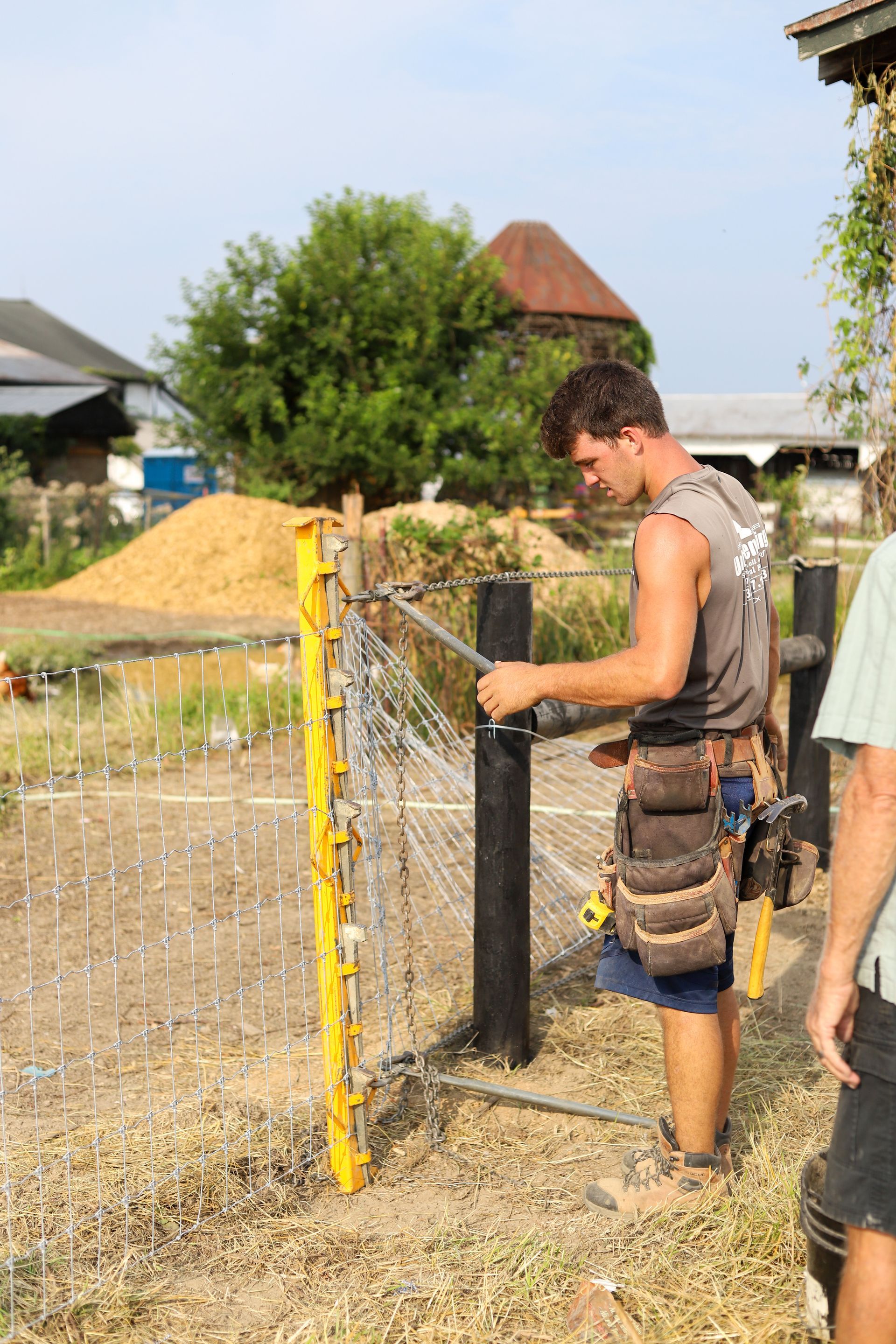
When you're ready to enhance your property with a new fence, you want the job done right. Searching for "fence installation near me" in Wayne County, Ohio, leads you to United Fencing, where you're not just buying materials—you're getting a complete, professional solution. As trusted vinyl fence installers near me and dedicated privacy fence installers, we provide everything from expert consultation to flawless installation, all under one roof. Our goal is to make your fence project a seamless, stress-free experience. The Advantage of a Professional Fence Installation Crew in Apple Creek While a DIY fence project might seem appealing, it often comes with hidden costs and unexpected challenges. Hiring a professional fence installation crew in Apple Creek ensures your investment is protected from the very beginning. Our crews are not only experienced but also specialize in the intricacies of different fencing types, from measuring and post-setting to final-gate hanging. We work efficiently, minimizing disruption to your daily life, and our expertise guarantees a secure, long-lasting fence that adds value to your property. Comprehensive Services for Every Fencing Need At United Fencing, we pride ourselves on offering a wide range of materials and installation services to match your specific needs and aesthetic vision. Vinyl Fence Installers: If you're seeking a durable, low-maintenance fence with a classic or modern aesthetic, our vinyl specialists are the best in the business. We ensure perfect alignment and secure installation for a fence that looks new for decades. Privacy Fence Installers: We understand the importance of creating a secluded retreat. Our crews are experts in installing privacy fences that provide a beautiful and effective barrier against noise and prying eyes, turning your backyard into a true sanctuary. Agricultural and Commercial Fencing: Beyond residential projects, we have the experience and equipment to handle large-scale agricultural fencing and commercial installations. Whether you need to secure a farm field or a business property, our team delivers the same level of quality and professionalism. Affordable Fence Installation and Parts Supplier in Wayne County, Ohio We believe that professional quality should be accessible. As an affordable fence installation and parts supplier in Wayne County Ohio, we offer competitive pricing on both materials and labor. By sourcing all your supplies directly from us and utilizing our in-house crews, you eliminate the hassle of dealing with multiple vendors and enjoy a streamlined process from start to finish. Our commitment to using high-quality materials from elite brands ensures that even our most budget-friendly options provide reliable and lasting performance. When it comes to building a fence that stands the test of time, the choice is clear. Don't compromise on quality or peace of mind. Contact United Fencing today for a consultation and let our expert team handle your next fence installation project.
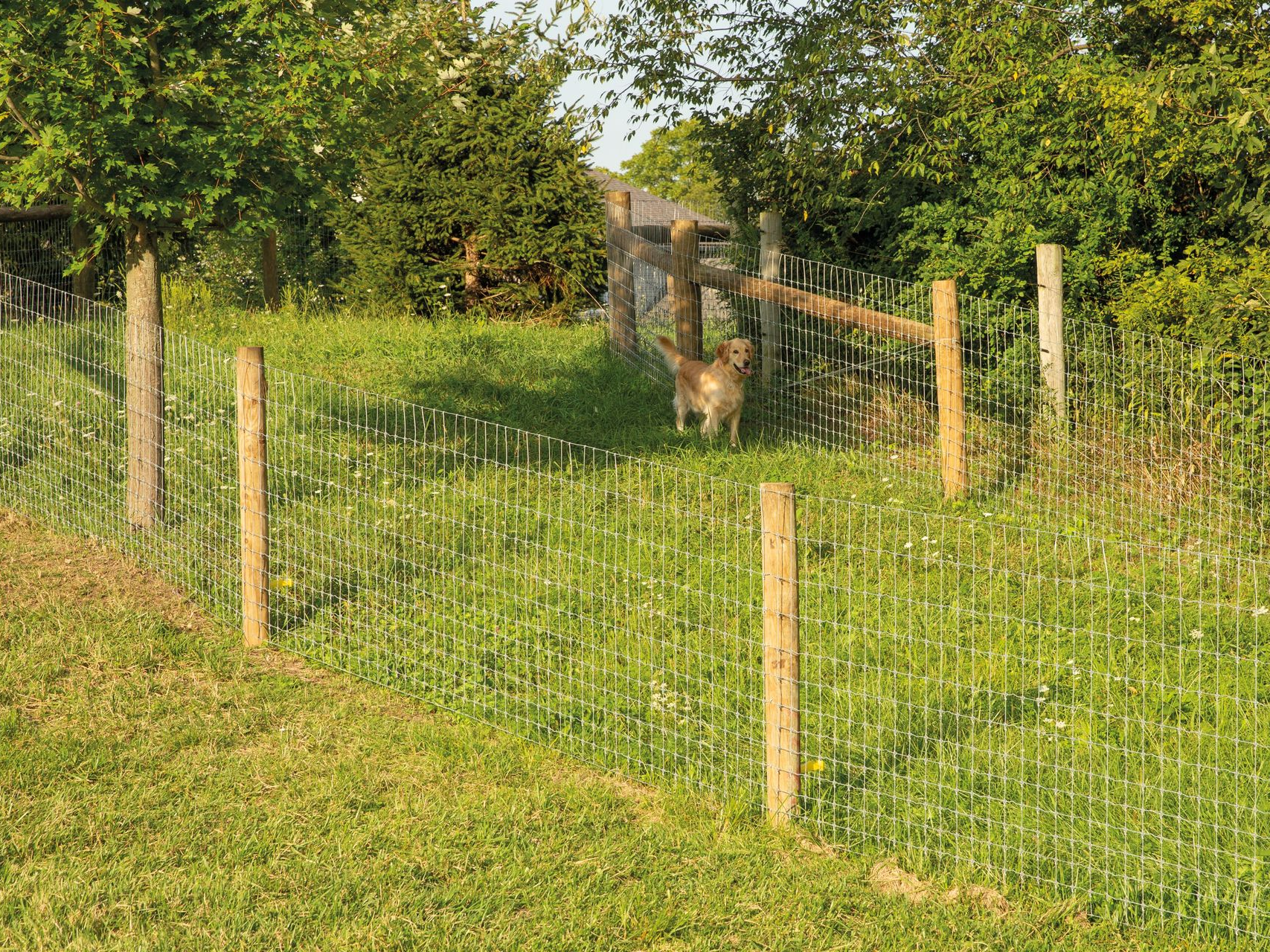
Tackling a major fencing project yourself saves you money and gives you a sense of accomplishment. But what about the specialized tools you'll only use once? Buying a post driver or a compact track loader for a single project is simply not practical. This is where fence equipment rental comes in. At United Fencing, we offer a vast inventory of top-tier tools and machinery to help you make your fencing and property dreams a reality without the high cost of ownership. Everything You Need for a Seamless Installation We know that a successful fence project depends on using the right tools. Our comprehensive tool rental fencing supplies are designed to make every step of your installation or repair process easier and more efficient. For woven wire fence projects, our Stay-Tuff Stretcher Bar and Stay-Tuff Easy Wire Puller ensure tight, professional-looking tension. The Stockade Staple Gun makes securing wire to posts a breeze, while our Kencove T1N Crimper creates clean, strong wire terminations. You can also efficiently unroll hi-tensile wire for large projects with our Kencove TSJHH Spinning Jenny. Beyond wire fencing, we provide a wide range of essential tools, including a cordless Graco paint sprayer for quick and even application of paint or stain. Heavy Equipment & Attachments for Big Jobs When your project demands more than just hand tools, our heavy fence equipment rental options are the solution. Our powerful Montana Post Drivers (in both 750 and 1000 models) and the Ideal Farm Equipment Trailer Post Driver make short work of driving posts into the ground, saving you immense time and effort. For land clearing and site preparation, rent our versatile JCB Compact Track Loader or the compact Dingo TX 1000 Widetrack. We also offer attachments like the Express Steel 72" Extreme Brush Cutter for clearing overgrown areas, the Extreme Root Grapple for tackling tough debris, and an Auger Drive for a Dingo or Skid Steer to quickly dig post holes. With our DA Hochstetler Driveway Grader, you can even handle landscaping and leveling tasks with professional results. Why Choose Our Rental Services? United Fencing's fence hardware rental services give you access to elite, well-maintained brands and equipment without the commitment of buying. This means you get the best tools for the job at a fraction of the cost, and you don’t have to worry about storage or maintenance. We’re your one-stop shop for everything from fencing supplies and materials to the equipment you need to get the job done right. Stop by our Apple Creek location today or contact us to discuss your project needs. We'll help you find the right fence equipment rental to make your next project a success!

At United Fencing, you know us as your trusted partner for high-quality fencing solutions and expert installations. Indeed, defining boundaries and securing properties remains our core expertise. However, step inside our expansive store in Apple Creek, Ohio, or browse our comprehensive online shop, and you'll quickly discover we offer so much more! We've diligently expanded our departments to become your go-to resource for everything related to your property, your beloved pets, and your thriving farm and garden. A World of Products for Your Animal Companions We understand that caring for animals extends far beyond just building fences to contain them. That's why our dedicated pet supplies section is brimming with essentials for every furry or feathered member of your family. You'll find a wide variety of nutritious dog food and cat food, catering to different breeds, ages, and dietary needs. Beyond sustenance, we stock comfortable chicken bedding to keep your flock cozy, and durable waterers designed for everything from small pets to large livestock, ensuring constant access to hydration. From toys and chews that keep tails wagging, to collars, leashes, harnesses, and even doghouses in various styles and sizes, we have the practical items that make pet ownership easier and more rewarding. Cultivating Green Spaces: Your Lawn & Garden Headquarters Spring's arrival or any growing season's promise means it's time to nurture your green spaces. Our extensive lawn and garden department provides everything you need to cultivate a vibrant yard and a bountiful harvest. Whether you're a seasoned gardener or just starting out, you'll find reliable garden equipment like sturdy shovels, ergonomic rakes, and precision pruning tools. We also offer vital plant foods and fertilizers to enrich your soil, alongside effective weed control products to protect your plants from unwelcome competition. From insect and disease solutions, to friendly service, we support your gardening aspirations from preparation through harvest. Supporting Your Farm Operations For our farming community, United Fencing offers more than just robust agricultural fencing. We stock a range of essential farm supplies to assist with daily operations. This includes various types of animal bedding, feeders for different livestock, and even specialized hardware and tools that extend beyond basic fence repair, helping you maintain various aspects of your farm. Our goal is to consolidate your purchasing, making it easier to acquire everything you need in one convenient location. Your Comprehensive Property Partner We've built our reputation on quality and service in fencing, and we apply those same high standards across all our departments. Our goal is to make your life easier by providing a vast selection of products, paired with knowledgeable staff who are ready to offer advice and solutions. So, next time you're planning a project, restocking daily essentials for your animals, or simply looking to enhance your outdoor living space, think beyond the fence. Shop United Fencing for all your property, pet, and farm needs! Visit us in Apple Creek, Ohio, or browse our full selection online. We help make better neighbors!

As autumn’s crisp air fills the landscape, so do the vibrant colors of falling leaves. While beautiful, this season means a lot of hard work to keep your lawn looking its best. At United Fencing, we are your trusted local source for high-quality yard and garden equipment. We understand that efficient tools turn a daunting task into a manageable one. If you’re searching for durable yard work carts, leaf rakes, or the best garden tool supplies for lawn care in Wayne County Ohio, our store has everything you need to make fall cleanup a breeze. The Essential Rake: Your First Line of Defense Every fall yard cleanup begins with a reliable rake. We stock a variety of options designed for different needs and preferences. Our 22-TINE STEEL LEAF RAKE is built for durability and strength, making it ideal for moving large piles of wet or compacted leaves. For a lighter, wider, and more flexible approach, our 26-TINE POLY LEAF RAKE is perfect for quickly and comfortably gathering leaves from across your lawn. Having the right rake is the first step to conquering the colorful blanket of leaves. The Mighty Cart: Haul It All with Ease Once you’ve raked up those leaves, moving them can be a back-breaking task. That’s where our garden carts and wagons come to the rescue. Our versatile UTILITY CART is a prime example of a tool that makes heavy hauling effortless. Instead of struggling with large bags, simply rake your leaves directly into the spacious bed of the cart. These sturdy carts and wagons are perfect for transporting not just leaves but also mulch, soil, firewood, and other supplies, making them invaluable for all your fall chores. The convenience of a reliable utility cart or wheelbarrow means less hassle and more efficiency as you clear your property. Beyond Raking: Comprehensive Fall Lawn Care Fall is also an excellent time to prepare your lawn for the coming winter. We offer valuable tips and garden tool supplies for lawn care in Wayne County Ohio to help you: Mulch Your Leaves: Use a lawn mower with a mulching feature to chop up leaves and return valuable nutrients to your soil. Aerate Your Lawn: Use an aerator to reduce soil compaction and ensure water and nutrients reach the roots. Fertilize: Apply a fall fertilizer to help your lawn store energy for a healthy spring comeback. By having the right equipment, you ensure a neat lawn and prepare your property for the colder months. United Fencing: Your Local Partner in Property Care At United Fencing, we believe a beautiful yard is a step towards a happier home and community. Our motto, “We help make better neighbors,” inspires us to provide the tools and supplies you need to maintain your property with ease. Visit our store in Apple Creek today to explore our full selection of yard and garden equipment. We’ll help you find the perfect garden carts and wheelbarrows to get your fall cleanup done right.
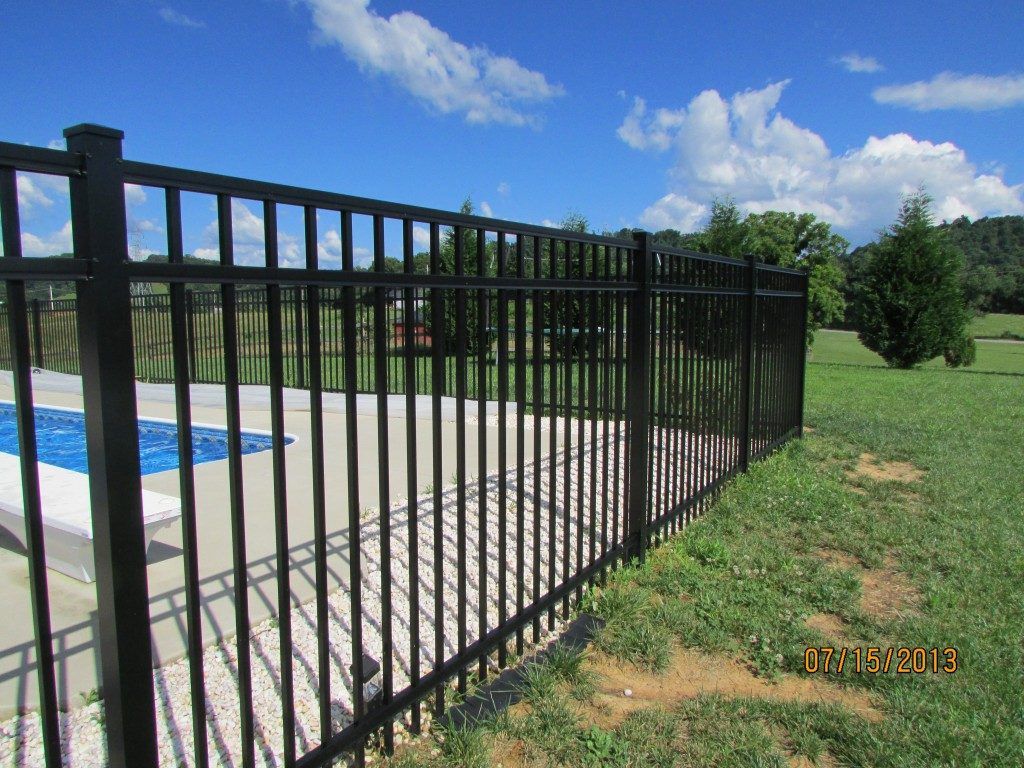
In today's fast-paced world, homeowners are increasingly seeking solutions that combine sophisticated aesthetics with minimal upkeep. When it comes to enhancing your property's value and curb appeal, aluminum fencing stands out as the premier choice, offering a sleek, contemporary look with the added benefit of low maintenance aluminum features. At United Fencing, we specialize in delivering and professionally installing these modern barriers, ensuring a flawless addition to your home. The Allure of Modern Aluminum Fencing Aluminum fencing provides a clean, architectural appeal that seamlessly integrates with a variety of home styles, from traditional to ultra-modern. Its inherent properties make it a standout material for discerning property owners: Sleek and Contemporary Aesthetic: Unlike heavier, more ornate materials, aluminum fencing boasts clean lines and an understated elegance. Available in a variety of finishes, including popular colors, it offers a sophisticated backdrop to your landscaping. Find styles to match your preferred aesthetic that create a truly distinctive look. Unmatched Durability: Aluminum is inherently strong, resistant to rust, corrosion, and insect damage. It withstands Ohio's diverse weather conditions – from summer heat to freezing winters – without cracking, warping, or rotting. A True Low-Maintenance Solution: This is where aluminum fencing truly shines. Forget about scraping, painting, staining, or sealing. Its powder-coated finish acts as a resilient shield, maintaining its color and integrity for decades with little more than an occasional rinse with a garden hose. This low maintenance of aluminum frees up your valuable time for other pursuits. The Professional Installation Advantage While the appeal of aluminum is undeniable, its proper installation is critical to maximize its benefits and longevity. As expert aluminum fence installers, United Fencing ensures your investment is precisely placed: Precision and Expertise: Our professional installers understand the nuances of working with aluminum, ensuring accurate measurements, proper post-setting, and seamless panel alignment, even on sloped terrain. This precision guarantees a fence that looks perfect and performs flawlessly. Efficiency and Convenience: Our experienced crews work efficiently, completing your installation with minimal disruption to your daily life. You save the time and hassle of a complex DIY project, avoiding potential pitfalls and ensuring the job is done right the first time. Longevity and Warranty: Correct professional installation protects your aluminum fencing investment, preventing issues that can arise from improper setup. Manufacturers often back their aluminum fences with robust warranties, a testament to their durability, especially when installed by certified professionals. United Fencing: Your Partner in Modern Property Enhancement At United Fencing, we are dedicated to providing top-tier aluminum fencing solutions that combine the beauty of modern aesthetics with the ultimate low maintenance of aluminum. Our team offers a wide selection of styles and heights to perfectly complement your home and enhance your outdoor living space. Ready to transform your property with a beautiful, durable, and virtually maintenance-free fence? Contact United Fencing today or visit our showroom to explore our aluminum fencing options and discuss professional installation. Let us help you achieve the sophisticated look and lasting value you desire.
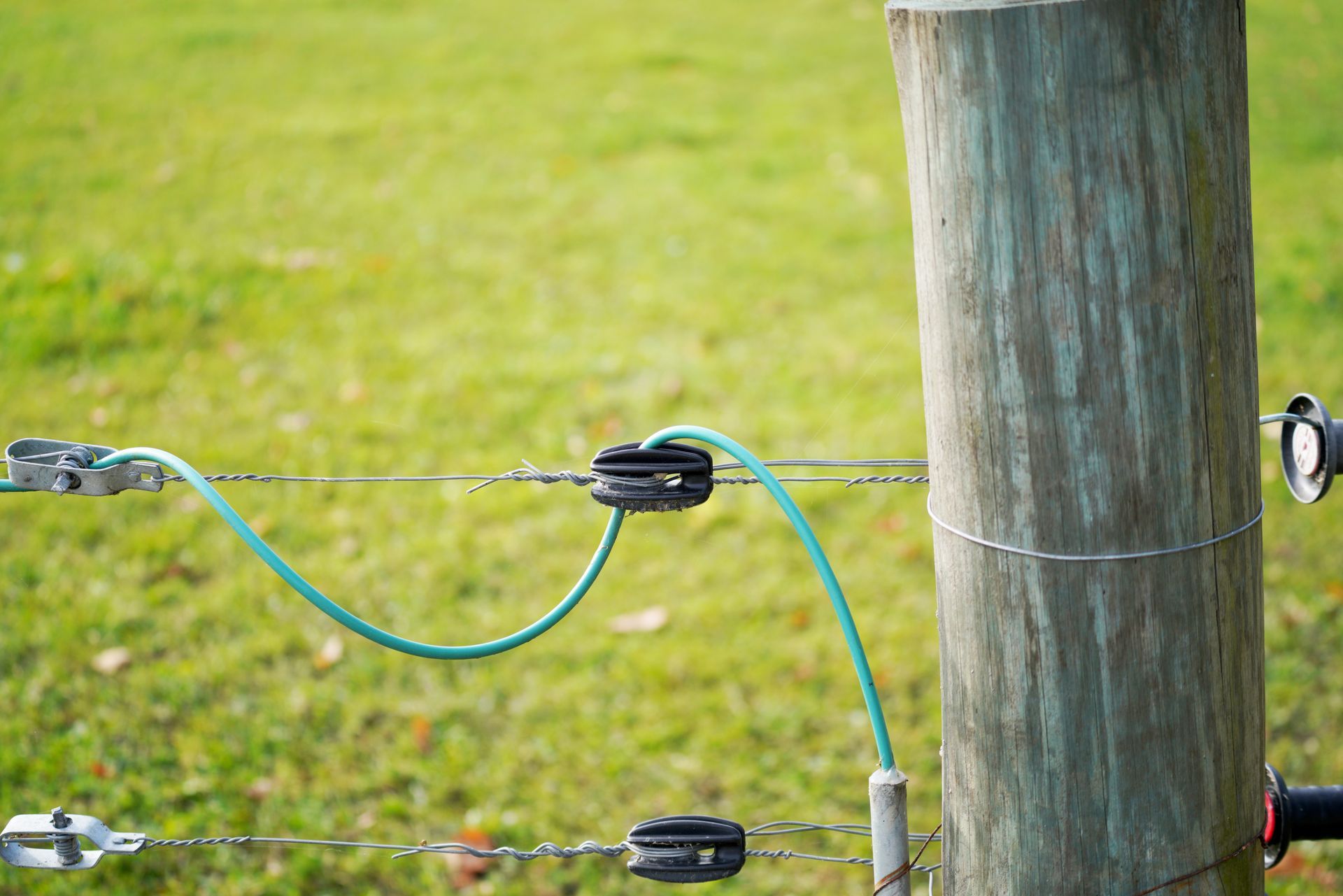
Choosing the right electric fence is more than just buying wire; it's about creating a precisely tailored containment system that effectively manages your livestock, defines your property boundaries, and ensures safety. At United Fencing, we understand that "one size fits all" simply doesn't apply to electric fence solutions. As your trusted local fence company, we're here to guide you through the critical factors in finding the exact setup for your needs, from energizer selection to the right fence wire. 1. Determine Your Specific Needs: The Foundation of Your Electric Fence Before you even think about materials, define the primary purpose of your electric fence: Livestock Type & Behavior: Different animals require distinct specifications. For example, hardy cattle might respond to a strong pulse, while quick-moving sheep or goats need closer wire spacing to prevent them from slipping through. Pigs, with their rooting habits, demand wires closer to the ground. Horses benefit from highly visible wire options. Fence Permanence: Are you seeking a temporary solution for rotational grazing or a robust, long-term containment system? Temporary electric fence setups are portable and easy to relocate, ideal for flexible pasture management. Conversely, permanent electric fence designs offer superior durability and stability for fixed boundaries. Area Size: The acreage you need to fence directly impacts the power output required from your energizer and the quantity of fence wire and posts you'll need. Power Source Availability: Consider your location. Do you have access to AC power, or is a solar-powered energizer a better fit for remote pastures? Battery-powered options offer versatility for shorter, portable fences. 2. Key Components: The Heart of Your Electric System Every effective electric fence relies on a few critical components working in harmony: Energizer Selection: This is the core of your system, delivering the voltage pulse. Factors like fence length, vegetation, and the type of animal dictate the necessary joule output. Our experts help you match the energizer to your specific requirements. Wire Type: United Fencing offers robust coated hi-tensile wire and standard hi-tensile wire fencing, ideal for permanent installations. For temporary or rotational setups, we have braided rope, twine, tape, or net options. Posts & Insulators: Choose posts (wood, steel, or durable plastic) suited for your fence type and desired spacing. Insulators are non-negotiable; they prevent the electric current from shorting to the ground, ensuring maximum effectiveness. Grounding System: Often overlooked, a proper grounding system is paramount. Without sufficient grounding rods, the electric shock will be weak or nonexistent. We emphasize adequate grounding to ensure a powerful deterrent. 3. Installation & Maintenance: Ensuring Long-Term Effectiveness Even the best components need correct installation and consistent upkeep. Follow Instructions: Always adhere strictly to manufacturer's instructions for post spacing, wire tension, and energizer connections. Vegetation Control: Keep grass and weeds trimmed away from the fence line. Overgrown vegetation can "short out" the fence, reducing voltage. Regular Testing: Routinely test your fence with a voltage meter to confirm it's delivering the correct charge and operating as intended. Safety First: Always prioritize safety. Wear rubber gloves and boots when working on an electric fence, and place clear warning signs. United Fencing is your comprehensive resource for all things electric fencing. Our knowledgeable staff is always willing to help customers choose the best option for their livestock, property, and aesthetic needs. Visit us today to ensure your electric fence project is a success. We help make better neighbors.

